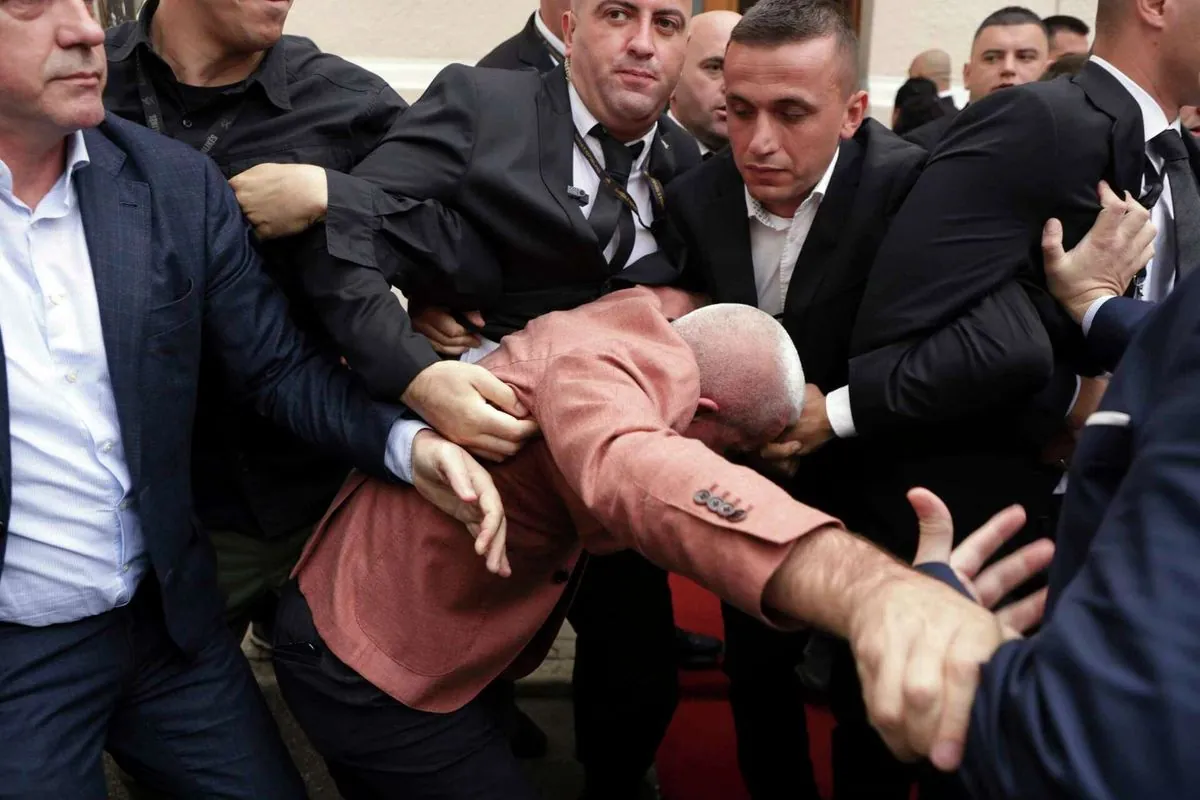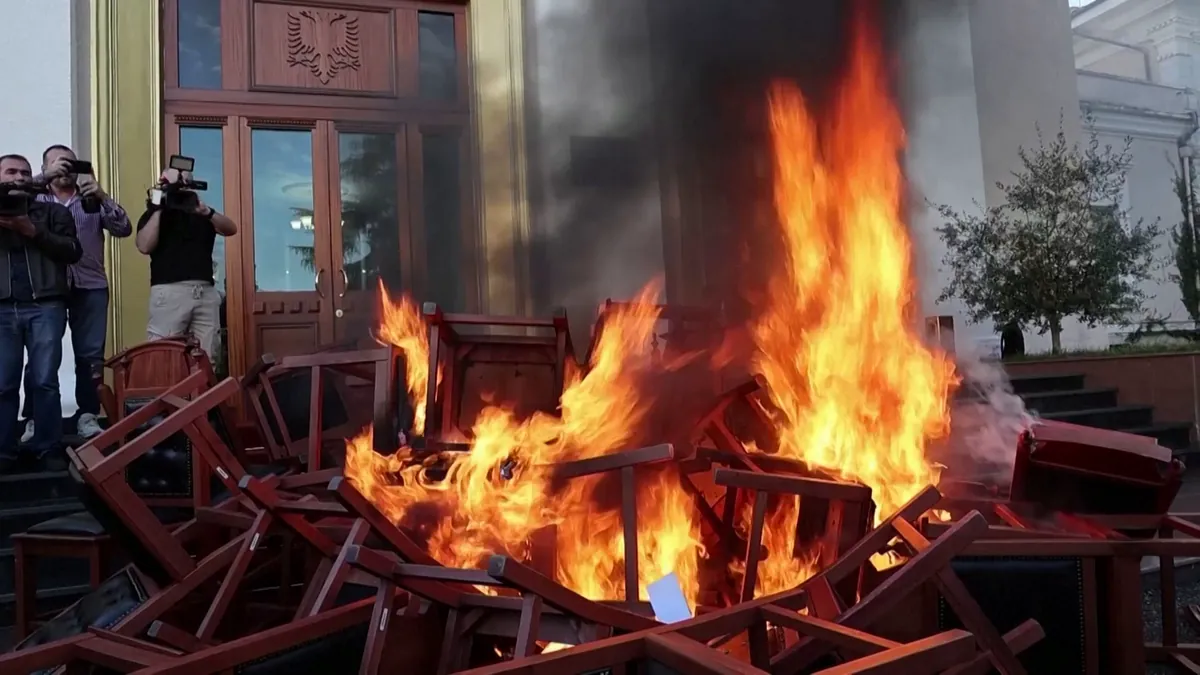Albanian Opposition Protests Lawmaker's Imprisonment, Burns Effigies
Albanian opposition lawmakers protested in Parliament, burning effigies and clashing with bodyguards over a colleague's imprisonment. The incident highlights ongoing political tensions in the Balkan nation.

In a display of political unrest, Albanian opposition lawmakers from the conservative Democratic Party staged a protest in Parliament on October 3, 2024. The demonstration, marked by the burning of effigies and confrontations with security personnel, was sparked by the recent imprisonment of their colleague, Ervin Salianji.
Salianji, who began serving a one-year sentence in late September 2024, was convicted of slander following a 2018 incident where he demanded the resignation of the then-interior minister over allegations of his brother's illegal activities. These claims were later proven to be fabricated. Salianji has since appealed his conviction to the Supreme Court.
The protest is the latest in a series of actions by the opposition, who claim that Salianji's conviction is politically motivated. Earlier this week, on September 30, the Democrats disrupted a parliamentary session, resulting in punitive measures against 24 of their members, who received suspensions ranging from 10 to 60 days.
During Thursday's protest, opposition lawmakers attempted to block their Socialist Party counterparts from entering the chamber. The situation escalated when protesters burned effigies of four governing Socialists, including Prime Minister Edi Rama and Interior Minister Fatmir Xhafaj. Unable to enter the hall, the opposition eventually ended their demonstration, allowing the Socialist lawmakers to conclude the session.

The Democratic Party has called for a national protest in Tirana, the capital city, on October 7, 2024, urging supporters to engage in civil disobedience. This call for action is part of a long-standing conflict between the opposition and the governing Socialists, whom the Democrats accuse of usurping power, including control over the judiciary.
Albania, a country with a rich history dating back to its declaration of independence from the Ottoman Empire in 1912, has experienced significant political changes over the past century. The nation transitioned from a communist state (1944-1992) to a parliamentary democracy, joining NATO in 2009 and actively pursuing European Union membership.
The current political tensions occur against the backdrop of Albania's progress towards EU integration. In 2020, the EU decided to launch full membership negotiations with Albania. Later this month, Tirana is set to begin discussions with the bloc on aligning with EU standards in areas such as the rule of law, functioning of democratic institutions, and anti-corruption efforts.
The European Union and the United States have urged the opposition to resume dialogue with the government, emphasizing that violence will not aid Albania's EU integration process. This call for peaceful resolution is particularly significant given Albania's strategic importance in the Balkan region and its ongoing efforts to strengthen democratic institutions.
"Violence will not help the country integrate into the European bloc. We urge all parties to engage in constructive dialogue for the benefit of Albania's future."
As these events unfold, Prime Minister Edi Rama, who has led the Socialist Party since 2005 and served as prime minister since 2013, is currently undergoing surgery for an inguinal hernia at the Mother Teresa University Hospital Center in Tirana. Rama, now 60 years old, is in his third term as prime minister, with the next parliamentary election scheduled for 2025.
The ongoing political turmoil in Albania highlights the challenges faced by this Balkan nation as it strives to strengthen its democratic institutions and pursue European integration. With a population of approximately 2.8 million and a diaspora estimated at over 1.5 million worldwide, Albania's political stability and progress towards EU membership remain crucial for its future development and regional influence.


































